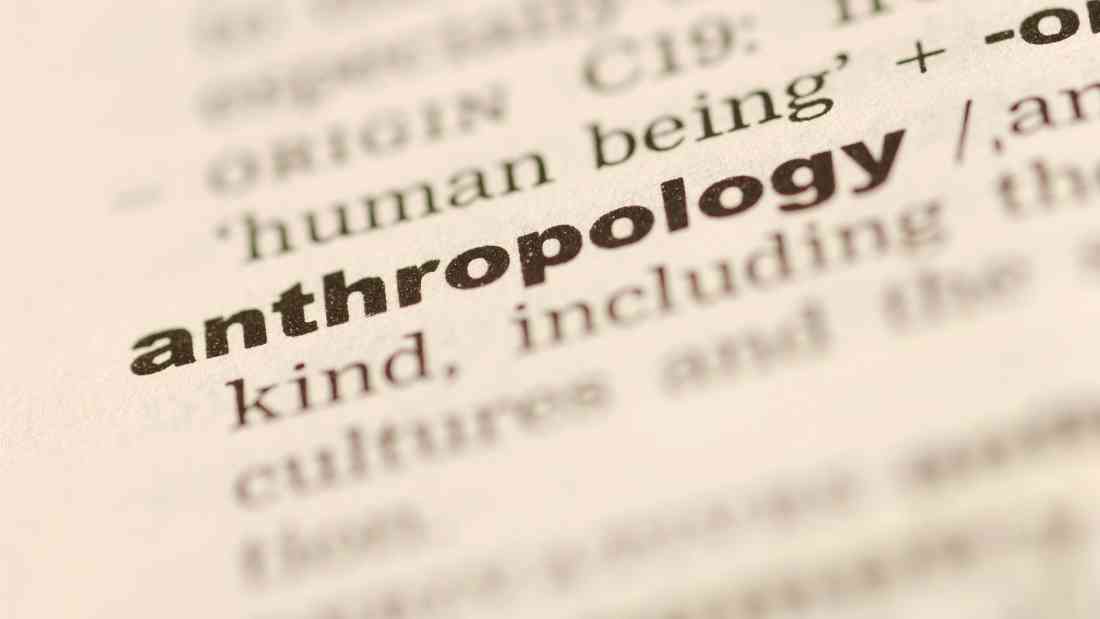Welcome to our exploration of the fascinating world of anthropology! In this blog post, we’ll delve into the four fundamental branches of anthropology, shedding light on how each contributes to deciphering the intricate tapestry of human diversity.
From archaeology to linguistics, biological anthropology to socio-cultural anthropology, each branch offers unique insights into the complexities of human society and culture.
What is Anthropology?
Anthropology is a multidisciplinary field of study that explores and examines human beings, their societies, cultures, and the biological aspects of humanity.
It seeks to understand the diverse facets of human existence. By studying social structures, cultural beliefs and practices, language and evolutionary history, anthroplogists seek to decipher the ways in which individuals and groups interact within their environments.
It also provides valuable insights into the complexity and diversity of human life. Thus it helps us better understand ourselves, our origins, and our place in the world.
What Do Anthropologists Do?
Anthropologists use a holistic approach, considering various factors such as historical context, environmental influences, and societal dynamics when studying human societies and cultures.
They employ a range of research methods, including participant observation, interviews, surveys, and analysis of artifacts, to gather data and gain insights into different aspects of human life.
The field of anthropology is typically divided into four main branches.
The Four Main Branches of Anthropology
Anthropology, the study of humanity, encompasses a vast array of subjects and disciplines.
Within this expansive field, four distinct branches have emerged – Archaeological Anthropology, Biological Anthropology, Linguistic Anthropology, and Socio-cultural Anthropology.
Together, these four branches of anthropology provide a comprehensive framework for understanding the intricate facets of human existence.
They offer valuable insights into our past, present, and future, fostering cross-cultural awareness, challenging ethnocentrism, and promoting a deeper understanding and appreciation for the diversity that defines us as a species.
Through their collective endeavors, anthropologists continue to unlock the secrets of human history, culture, biology, and language, enriching our knowledge and expanding our horizons as we navigate the complexities of the world we inhabit.

Archaeological Anthropology: Revealing the Footprints of Our Ancestors
One of the foundational branches of anthropology, archaeological anthropology, serves as a bridge to our collective past.
It is an academic discipline that delves into the historical fabric of civilizations, unraveling the intricate tapestry of human history through the remnants left behind.
In their quest to understand and interpret the past, archaeological anthropologists engage in a detailed study of artifacts, structures, and cultural remains from previous civilizations.
The fragments of ancient societies they uncover shed light on the customs, beliefs, and daily routines of those who lived before us.
Archaeological anthropology provides a unique perspective on the diversity of human civilizations throughout history. By examining cultural artifacts, architectural structures, and even burial sites, these researchers can draw conclusions about societal norms, value systems, and technological advancements.
Through the study of archaeological anthropology, we are given a glimpse into the material worlds produced and inhabited by ancient human communities.
This exploration not only enriches our understanding of human evolution but also enhances our appreciation of the complexities and richness of human cultures across time.

Linguistic Anthropology: Decoding the Power of Language in Shaping Culture
Language is not merely a tool for communication. It is a powerful force that shapes our perceptions, behaviors, and cultural identities.
Linguistic anthropology, one of the main branches of anthropology, delves deep into this intricate relationship between language and culture, exploring how language both reflects and influences society.
From the standpoint of linguistic anthropology, language is seen as a symbolic system of sounds or gestures that convey meaning. This discipline emphasizes the importance of context in language use and stresses the social and cultural factors that influence how language is used in specific situations.
Linguistic anthropologists scrutinize various aspects of language, including syntax, semantics, and phonetics, to understand the subtle nuances that different languages carry.
They delve into the study of language patterns, dialects, and even non-verbal communication, such as gestures and body language. Through this lens, they decode the intricacies and complexities of human interaction.
The Impact of Language on Identity and Culture
One of the core focuses of linguistic anthropologists is examining how language shapes our perceptions and identities. For instance, the language we use can reflect our social status, professional role, or regional identity. It can also reveal our beliefs, values, and biases, providing a window into our cultural background and personal worldview.
The Dynamics of Power
Moreover, linguistic anthropology explores the dynamics of power in language use. It investigates how language can be used to establish, reinforce, or challenge social hierarchies and power structures. For example, the choice of language or dialect can signal social superiority or inferiority, and the control over language use can be a form of power.
The study of linguistic anthropology also extends to the realm of literacy practices. Linguistic anthropologists examine how the ability to read and write impacts social interactions and cultural practices. Literacy is seen not just as a cognitive skill but as a social practice that can influence power relations, social status, and cultural identity.

Biological Anthropology: Tracing the Origins and Evolution of Homo Sapiens
Situated at the crossroads of biology and anthropology, biological anthropology offers a fascinating and in-depth exploration of our evolutionary history.
This field delves into the study of human evolution, genetic variations, and adaptations, tracing the intricate journey of the evolution of mankind.
Biological anthropologists employ a range of tools and methodologies to investigate our origins. From examining skeletal remains and ancient DNA to studying primates, our closest living relatives, they unravel the complex web of our shared ancestry.
This holistic approach enables them to shed light on the biological diversity present among different populations and understand the factors that have shaped this diversity over time.
The Study of Human Evolution
The study of human evolution is central to biological anthropology.
Our understanding of human evolution has been significantly advanced by paleoanthropology, which involves the study of fossilized bones and teeth.
Fossil evidence helps us trace the lineage of Homo Sapiens back to our apelike ancestors, revealing a timeline that spans millions of years.
Genetics also plays a crucial role in our understanding of human evolution.
Geneticists have been able to retrace our roots back to Africa, providing compelling evidence that Homo Sapiens originated on this continent.
Furthermore, the study of genetic variations among different populations offers insights into human migration patterns and the forces of natural selection.
Biological anthropology also encompasses the study of primatology.
By studying non-human primates, we can gain valuable insights into our own behavior, social structures, and evolutionary history.
This comparative approach underscores the interconnectedness of all primates and provides a broader context for understanding human evolution.

Socio-Cultural Anthropology: Unraveling Society’s Patterns and Belief Systems
Located at the very heart of anthropology, socio-cultural anthropology provides an in-depth examination of human societies and cultures. It serves as a bridge to understanding the intricate patterns, belief systems, and social structures that shape our world.
Socio-cultural anthropologists immerse themselves in communities across the globe, adopting an approach known as participant observation.
They live among the people they study, sharing their experiences, observing their behaviors, and engaging in their daily activities.
This immersive methodology offers a unique, ground-level perspective on the customs, practices, and social dynamics of different cultures.
Rituals and Ceremonies
A central focus of socio-cultural anthropology is the study of rituals and ceremonies. These communal events often serve as a microcosm of a society’s values, beliefs, and social hierarchies.
By analyzing these rituals, anthropologists can gain insights into the collective identity of a community and the symbolic meanings embedded in their cultural practices.
Kinship Systems
Kinship systems and family structures are another significant area of study within socio-cultural anthropology. The nature and dynamics of familial relationships can reveal a lot about a society’s norms, values, and social organization.
Whether examining matrilineal descent in certain African societies or the nuclear family structure prevalent in Western cultures, socio-cultural anthropologists shed light on the diverse ways humans form and maintain social bonds.
Economic Systems
Moreover, socio-cultural anthropology also investigates economic patterns and systems.
Anthropologists study how resources are produced, distributed, and consumed in various societies, offering insights into the interplay between culture and economics.
From the market economies of industrialized nations to the subsistence farming practices of indigenous communities, the field illuminates the broad spectrum of economic systems and their sociocultural implications.
Conclusion – The 4 Main Branches of Anthropology
In conclusion, the four main branches of anthropology offer us windows into the vast tapestry of human diversity.
Archaeological anthropology unveils the footprints of our ancestors, linguistic anthropology decodes the power of language, biological anthropology traces our origins, and socio-cultural anthropology unravels the patterns and beliefs that define our societies.
By exploring these branches, we gain a deeper appreciation for the rich complexity of human culture and the myriad ways in which we express our diversity.

Frequently Asked Questions About The Four Branches of Anthropology
The four primary branches of Anthropology are Biological (Physical) Anthropology, Archaeology, Linguistic Anthropology, and Socio-cultural Anthropology.
Biological Anthropology, also known as Physical Anthropology, studies human evolution, biological variations, and adaptations. It involves the study of human fossils, genetics, and primatology to understand our evolutionary history and genetic diversity.
Archaeology is a branch of anthropology that focuses on the study of past human societies through the analysis of material remains, such as artifacts, structures, and landscapes. It provides insights into human history and prehistory.
Linguistic Anthropology is the study of language in the context of human social and cultural diversity. It investigates how language influences social life, cultural identity, and perceptions, examining areas like language patterns, dialects, and non-verbal communication.
Socio-cultural Anthropology is the study of contemporary human societies and cultures around the world. It explores social structures, rituals, economic systems, kinship systems, and belief systems, offering insights into the complexities of human society and culture.
Each branch of anthropology offers a unique lens to view the complexity of human experiences, but they are all interconnected. For example, understanding a society’s language (Linguistic Anthropology) can provide insights into its cultural practices (Socio-cultural Anthropology), which in turn can be informed by the society’s historical context (Archaeology) and biological adaptations (Biological Anthropology).
For Further Reading
What are the key components of the anthropological perspective?
“Cultural values are a web of linked concepts, fixed in time and space.”
Evans-Pritchard and the Religion of the Nuer Tribe
How do economic and residence practices impact women’s status and power?
What are the different marriage wealth-exchange practices?
Claude Lévi-Strauss’s Structuralism and its Influence on Anthropological Thought
Clifford Geertz and the Thick Description of the Balinese Cockfight
Bronislaw Malinowski, the Trobriand people and the Kula
Dance as Ritual – an anthropological perspective
How Residence Customs After Marriage Vary Around the World
Compare the operations and implications of Bridewealth and Dowry
The impact of Assisted Reproductive Technologies (ARTs) on Anthropology
“The two-gender system is neither innate nor universal” (Towle and Morgan 2006)
The 4 Main Branches of Anthropology – Unlocking the Secrets of Human Diversity
Anthropology vs Sociology – Which Lens to Use When Studying Humanity?


